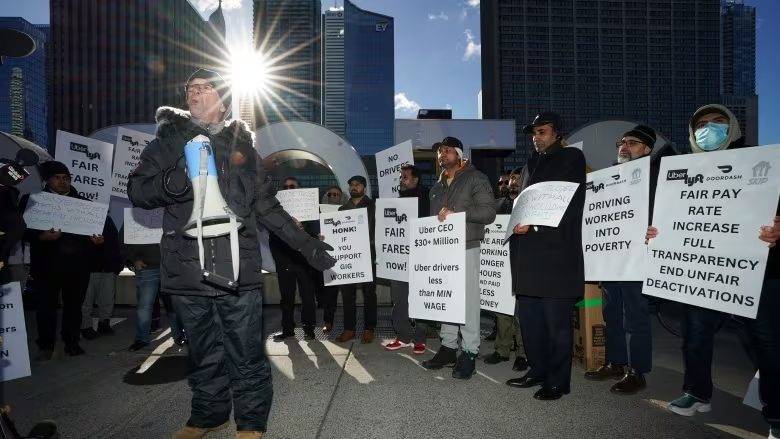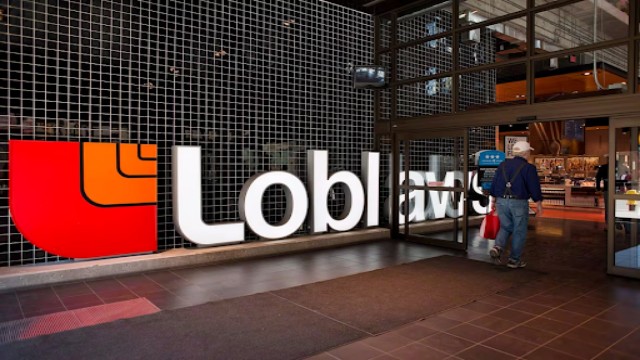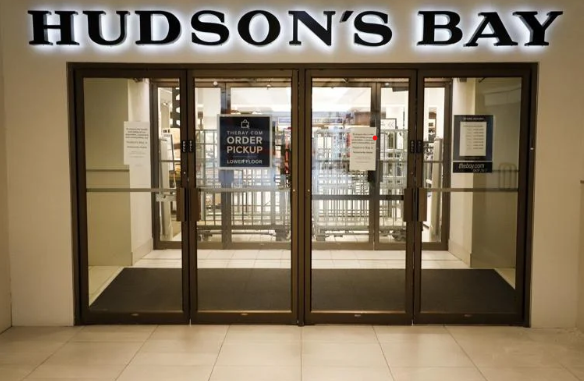
Rideshare drivers took to Nathan Phillips Square in Toronto Wednesday to call for better pay and working conditions under Uber and Lyft. (Arlyn McAdorey/The Canadian Press)
In Toronto, a recent study has unveiled disheartening revelations about the earnings of drivers associated with ride-sharing and food delivery services, prompting a protest by numerous drivers advocating for fair compensation and improved working conditions.
Published jointly by Ridefair Toronto and the Rideshare Drivers Association of Ontario (RDAO), the report challenges the claims made by Uber regarding driver earnings. Contrary to Uber's assertion of drivers earning $33.35 per engaged hour, the study suggests that many drivers are making significantly less, with some reportedly earning as little as $6.37 to $10.60 US per hour after factoring in operating costs and excluding tips.
Examining a sample of 96 weekly pay stubs from Toronto drivers, the report found that none of them met Ontario's minimum wage standards, indicating a pervasive issue affecting a considerable number of drivers in the city. JJ Fueser, a researcher with Ridefair Toronto, highlighted the consistency of these findings with similar studies conducted in California, Seattle, and Denver.
Uber, however, has vehemently refuted the findings, labeling the methodology of the report as 'shoddy'. According to Keerthana Rang, a spokesperson for Uber Canada, the report's reliance on a limited sample size doesn't accurately reflect the broader earnings landscape of Uber drivers in Toronto.
Furthermore, the report scrutinizes Uber's proposed minimum wage standard for gig workers in Ontario, which suggests paying 120 per cent of the province's minimum wage. However, Ridefair Toronto argues that this proposal would still result in substandard wages for drivers, dubbing it a "poverty trap."
The discontent among drivers isn't confined to Toronto alone. Across Canada and even internationally, drivers associated with ride-sharing and food delivery platforms are expressing dissatisfaction with their earnings and working conditions. The recent strike in Toronto mirrors similar actions undertaken by drivers in other cities, signaling a growing discontent within the gig economy workforce.
Despite the protests, Uber claims that its operations remained unaffected, emphasizing that the majority of drivers are content with their earnings. However, voices from the protest, like Muhammad Musharaf Hossen and Muhammad Kamran, paint a contrasting picture of the challenges faced by drivers trying to make ends meet amidst rising expenses and diminishing returns.
The protests come at a time when Uber's financial performance is soaring, with shares hitting record highs and substantial cash flow growth reported. However, the discrepancy between the company's financial success and the struggles of its frontline workers underscores the ongoing debate surrounding fair compensation and labor rights in the gig economy.
As the gig economy continues to evolve, the tension between the interests of platform companies and the well-being of their workers remains a contentious issue, with drivers and labor advocates calling for more equitable treatment and compensation.















